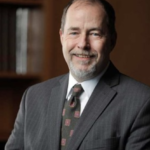Presumably GC Kevin Reed will be on the board this time. More here:
About UO Faculty Club
The Office of the President, Office of the Provost, and Jordan Schnitzer Museum of Art host the UO Faculty Club. In its third incarnation, the Faculty Club means to provide a place where faculty can gather in a welcoming and collegial space. Gatherings take place weekly on Thursdays from 4:00 – 6:00 pm in the JSMA. Snacks and soft drinks provided; beer and wine available for purchase at the bar.
Posted on 4/3/2019: GC Kevin Reed believes “toxic” Faculty Club “reeks of white male privilege”
Over the past year or so I’ve received many angry emails from UO’s $352,612 a year VP & General Counsel Kevin Reed, above, accusing me of various things and threatening me with various forms of retaliation. I’m posting this latest because he cced others, and because it might be of more general interest:
From: Kevin Reed <ksreed@uoregon.edu>
Subject: Re: University Service Opportunities
Date: April 3, 2019 at 9:10:31 AM PDT
To: Senate Executive Coordinator <senatecoordinator@uoregon.edu>, “William Harbaugh” <harbaugh@uoregon.edu>, Elizabeth Skowron <eskowron@uoregon.edu>
Cc: [names and addresses of OA, SEIU, and ASUO student leaders redacted]
Bill [Senate Pres Harbaugh, me] and Elizabeth [Senate VP Skowron]
I write in my capacity as a proud Officer of Administration at the University of Oregon. In that capacity, and as a person who is committed to improving the functioning of shared governance at UO, I write to question your decision to hold “informational sessions” relating to opportunities to serve the Senate at the “Faculty Club.”
The Faculty Club is not open to OA’s, classified staff, GE’s or students. It is not an environment where any of those crucial constituencies are likely, in my view, to feel welcome or to show up. Neither to I believe it to be a place where members of UO’s marginalized communities feel in the slightest bit welcome. Indeed, the Faculty Club has earned a reputation on campus as being an exclusionary group, dominated by white men. Exactly the sort of “good ole boys club” I think the Senate would want to distance itself from. Curiously, however, Senate leadership has chosen to treat it as its clubhouse.
Indeed, a respondent to a recent campus survey on faculty hiring had this to say about the Faculty Club:
“The faculty club – an extension of UO senate and Bill’s blog is a place where gossip takes place in an exclusive zone. Sidebar conversations empower those who show up to a space that is less than welcoming to anyone outside a core group of faculty. It reeks of white male privilege – even the name Faculty Club is destructive and screams of exclusion and privilege. Why does the UO community not actively resist these toxic activities?”
As an OA who truly thinks UO deserves better, I could not have said it better. I add, however, that the message this sends is especially toxic in the context of the current budget situation, in which the president has called for significant cuts to programs. On his blog, the Senate President has been posting conversations that suggest that there is bloat that should be targeted for cuts in the ranks of student workers, classified staff and officers of administration who are dedicated to making this university a safe and highly effective organization.
I believe the University and the Senate deserve better.
Kevin S. Reed
219 Johnson Hall | Eugene, OR 97403-1226
(541) 346-3082 | ksreed@uoregon.edu
My response:
Hi Kevin,
